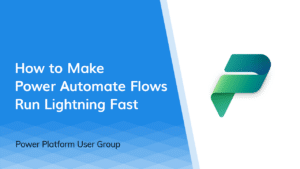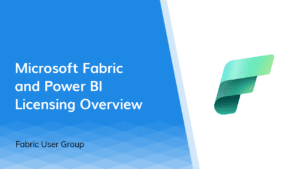More than 16.7 million people are victims of identity fraud annually. Being that 80% of social media users are concerned about advertisers and businesses accessing data they share on social media, it’s clear that data privacy is a big concern for consumers around the world.
With over 7,000 marketing technology applications, keeping track of all of your customer data is complex…but it’s also a vulnerability for your brand. Your customers go through multiple channels before reaching your website—Facebook, Google, email, Amazon. Every time you interact with your customers, you are entrusted with their personal data.
Customer data platforms (CDPs) are an essential tool that helps your brand reach customers more efficiently. When a CDP is combined with privacy compliance software, you keep your customers’ data safe and secure to build connected and trusted brand experiences.
What is a CDP (Customer Data Platform)?
A customer data platform (CDP) is a system that autonomously creates unified customer profiles with information gathered from multiple sources. CDPs collect data on anonymous visitors to your website and analyze lifetime customer behavior and customer journeys, tracking both online and offline customer data. They’re designed to handle multiple data points from a large number of sources.
According to the CDP Institute, a CDP is a “packaged software that creates a persistent, unified customer database that is accessible to other systems.”
A CDP helps you create a single view of customers and connect unified data to other applications to improve marketing performance, optimize engagement, enhance analytics, stay in compliance (CCPA, CPRA, GDPR) and get insights that drive personalized experience and increase your return on investment (ROI).
A customer data platform has these seven capabilities:
- Unified Customer Data – Collects data from any source with comprehensive details, provides a unified view of all customers’ data, stores all customer data in one place.
- Persistent Storage – Provides continuous storage of customer data, allowing you to create a unified profile over time.
- Delivered as Packaged Software – Delivered as a Software as a Service (SaaS)
- Data Activation and Open Access – Provides open API driven (vendor-neutral) access to data from other systems and applications.
- Segmentation – Rule and machine learning-based segmentation.
A CDP also has the ability to ingest first-party, individual-level customer data from multiple sources in real-time with no storage limitations. CDP data collection includes first-party identifiers, like emails or device IDs and attributes (including demographic information).
Some CDPs have the ability to send segments to specific tools to use in email campaigns, mobile messaging, advertising, and other campaign or channel activity. They might also have activation features like next-best recommendations, dynamic creative optimization, and testing and self-optimization capabilities.
A growing trend with customer data platforms is the convergence of CDPs and privacy compliance. Skypoint Cloud already provides a privacy compliance supported CDP to help you remain in compliance with privacy laws such as GDPR, CCPA, and CPRA.
What a CDP is Not
Now that you know what a CDP is, let’s talk about what a customer data platform is not. CDPs are frequently confused with other data management technologies. Below we explore some of the most common mix-ups with customer data platforms to help you understand these important differences.
CDP vs. CRM (Customer Relationship Management)
A CRM (customer relationship management) is more transactional, while a CDP is an analytical system. A CRM reports on known customers or potential customers and primarily analyze the sales pipeline and forecasting.
While CDPs can track offline and online data, CRMs can’t pick up offline data unless someone manually enters that information. CRMs aren’t designed to collect data from multiple sources, making it easier for information to get lost or mislabeled if not handled correctly.
CRMs are also generally built for B2B organizations—not B2C—so managing customer data at the individual level to create an actionable 360-degree view remains a challenge.
CDP vs. Data Warehouse
A data warehouse is an infrastructure that supports a CDP, but it’s not part of the CDP. It centralizes and consolidates large amounts of data from multiple sources. Businesses use data warehouses to build a historical record that improves decision making and provide valuable business insights. The data warehouse usually has the following capabilities:
- Statistical analysis, reporting, and data mining
- A database to store and manage customer data
- Sophisticated analytical applications
- Tools to help you visualize and analyze customer data
CDP vs. Marketing Automation
Marketing departments have to perform repetitive tasks constantly. Marketing automation software eases some of the burdens by making it quicker and more seamless to complete tasks like email campaigns, so marketers handle ongoing marketing activities efficiently.
A customer data platform also improves efficiency but instead stores the data for marketing automation solutions, rather than directly supporting marketing execution.
CDP vs. DMP (Digital Management Platform)
A DMP (digital management platform) is used in the advertising industry to get insights into digital information about their customers. Somewhat different than a CDP, a DMP provides clarity when it comes to managing your digital channels, but it doesn’t ensure your customers’ data is connected and protected.
Benefits of a CDP with Privacy Compliance Built-In
Skypoint Cloud is a customer data platform and privacy compliance software all rolled into one comprehensive solution. Skypoint is a great option if your teams are looking for a secure way to store customer data and use this data for marketing and sales programs that adhere to the latest privacy laws and regulations.
The General Data Protection Regulation (GDPR) went into effect in 2018, the California Consumer Privacy Act (CCPA) went into effect in January 2020, and most recently, the California Privacy Rights Act (CPRA) was passed by California voters in November. Companies must take the appropriate steps to ensure they’re in compliance.
Some of the ways Skypoint Cloud helps you stay in compliance include:
- Audit Disclosure Requests
- One-Click Delete (Right to Be Forgotten)
- Identity Resolution and Verification
- Cross Channel Preferences
CDPs like Skypoint’s offer privacy protection features including identity resolution, enforcing channel preferences and timely discovery for audit requests, and full suppression for “right to be forgotten” requests. Consolidating customer data into a privacy-first CDP makes it a lot easier for your brand to follow compliance best practices and create programs that prioritize consumer trust.
Do You Need a CDP?
Investments in CDPs are increasing to support the heightened focus on customer experience. 80% of respondents in this Segment report indicated their CDP has helped their company evolve to meet customer expectations. Expected business benefits from CDP investments include:
- Improved customer satisfaction (60%)
- Creation of a personalized customer experience (53%)
- Improved internal understanding of the end-to-end customer journey (50%)
- Increased customer lifetime value (CLTV) (48%)
- Improved customer retention rates (46%)
Do you need a CDP? The answer is…definitely! Because your brand is constantly managing and storing PII (personally identifiable information), your teams need a secure customer data platform with full-on privacy compliance capabilities.
IT and Analytics Teams
IT and analytics teams use a CDP like Skypoint Cloud to optimize data privacy so other teams feel confident with programs and systems that include customer data—and, most importantly, customers feel confident that your brand is doing the right thing with their data.
Skypoint improves responses to privacy-related issues by improving data reliability and efficiency. Skypoint’s combined privacy software and customer data platform offers a secure and accessible database to keep all of your customers’ data and their identities safe.
Privacy and Compliance Teams
Privacy and compliance teams benefit from CDPs by using them to make privacy compliance a top priority across the organization. It’s your job to stay on top of privacy management and make sure teams have what they need to keep up with these complex processes so they engage with customers in a meaningful way.
With Skypoint’s privacy compliance software, your teams keep all sensitive data in one location so everyone stays customer-focused and compliant. Think of Skypoint as your sensitive data gatekeeper. The CDP offers support by managing, tokenizing, and securing personally identifiable information (PII), while still making it easy to access for need-to-know team members.
Marketing and Sales Teams
Marketing and sales teams use CDPs to get the information they need to make the best decisions when it comes to running the business and building customer loyalty. By using a CDP like Skypoint Cloud, marketing and sales teams focus more energy on the way they use, see, and connect customer data every day.
Understanding your customers from a 360-degree view helps you avoid compliance missteps that will absolutely impact your brand reputation, customer retention, and business revenue. All of your systems, from your CRM to your email marketing platform, are updated with the latest customer consent preferences so you stay compliant…and laser-focused on creating amazing privacy-first customer experiences.
Want access to AI-powered CDP that keeps you in compliance with privacy laws? Give Skypoint’s privacy-first CDP a try and see how we help you connect customer data from all of your channels and systems to create exceptional customer experiences.











